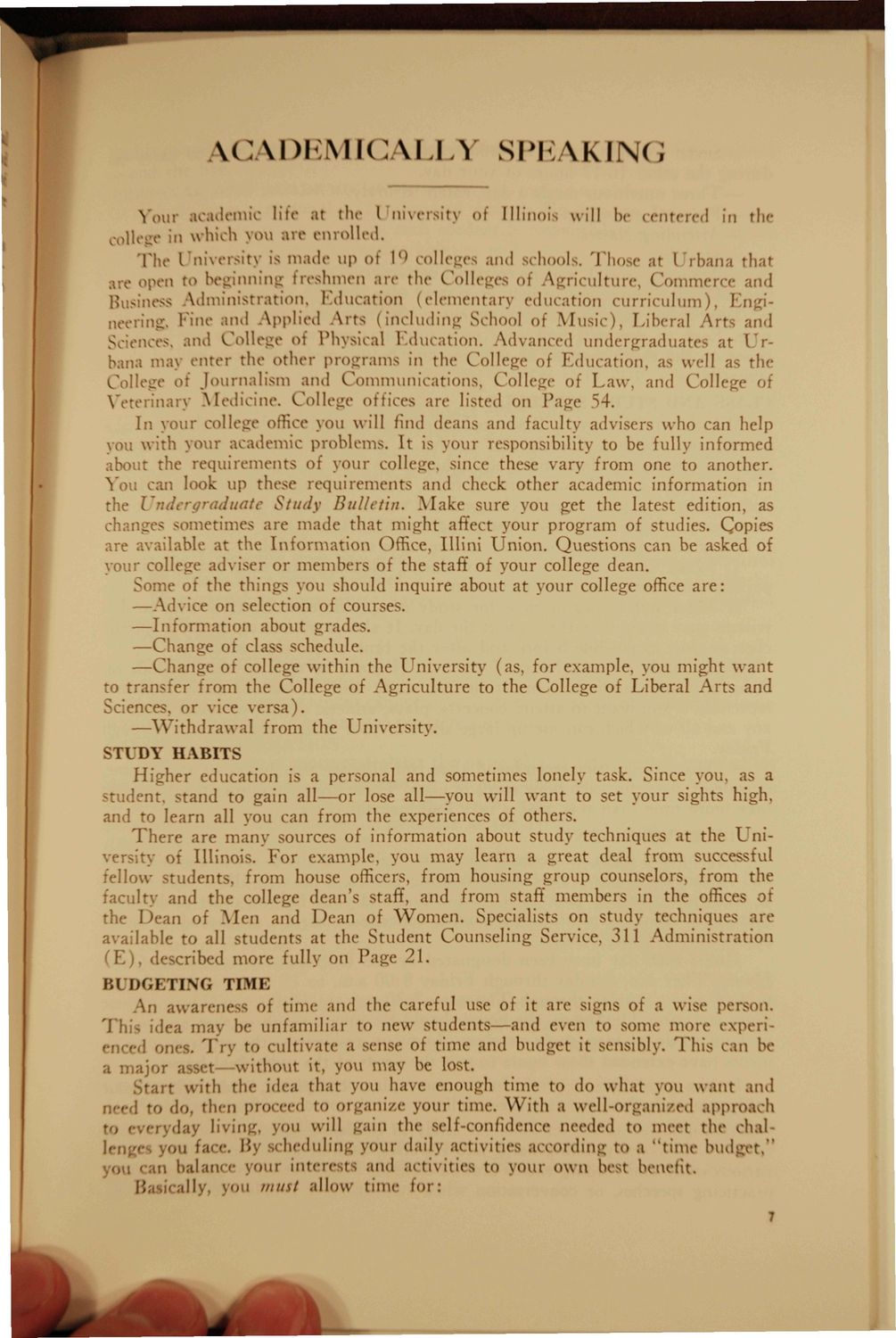| |
| |
Caption: Student Regulations - Undergraduates - 1961
This is a reduced-resolution page image for fast online browsing.

EXTRACTED TEXT FROM PAGE:
ACADEMICALLY Your academic life at the University College in which you are enrolled. ( SHAKING of Illinois will he centered in the The University is made up ot 1> colleges and schools. Those at Urbana that are open to beginning freshmen are the Colleges of Agriculture, Commerce and Business Administration. Education (elementary education curriculum), Kngineering, Fine and Applied Arts (including School of' Music), Liberal Arts and S ences, :m<\ College of Physical Education. Advanced undergraduates at Urbana may enter the other programs \n the College of Education, as well as tin College oi Journalism ami Communications, College of L a w , and College of Veterinary Medicine. College offices are listed on Page 54. In your college office you will find deans and faculty advisers who can help you with your academic problems. It is your responsibility to be fully informed about the requirements of your college, since these vary from one to another. You can look up these requirements and check other academic information in the Under aduatc Study Bulletin. M a k e sure you get the latest edition, as ges sometimes are made that might affect your program of studies. Copies are available at the Information Office, Illini Union. Questions can be asked of your college adviser or members of the staff of your college dean. Some oi the things you should inquire about at your college office a r e : Advice on selection of courses. Information about grades. Chance of class schedule. —Change of college within the University (as, for example, you might want to transfer from the College of Agriculture to the College of Liberal Arts and Sciences, or vice versa). W i t h d r a w a l from the University. STUDY HABITS Higher education is a personal and sometimes lonely task. Since you. as a tudent, stand to gain all—or lose all—you will want to set your sights high. and to learn all you can from the experiences of others. T h e r e are many sources of information about study techniques at the University of Illinois. For example, you may learn a great deal from successful "How students, from house officers, from housing group counselors, from the acuity and the college dean's staff, and from staff members in the offices oi the Dean of Men and Dean of W o m e n . Specialists on study techniques are available to all students at the Student Counseling Service, 311 Administration (E . described more fully on Page 2 1 . BUDGETING TIME An awareness of time and the careful use of it are signs ot a wise person. T h i s idea may be unfamiliar to new students—and even to some more experinced ones. T r y to cultivate a sense of time and budget it sensibly. T h i s can be a ijor : t—without it, you may he lost. Start with the idea that you have enough time to do what you want ami r; d to do, t h m proceed to organize your time. W i t h a well-organized approach Ciyday living, you will gain the self-confidence needed to meet the challenges you fa '•. By scheduling your daily activities according to a "time budget." yOU n balance your interests and activities to your own best benefit Basically, you must allow time tor: * i^flfei k \
| |